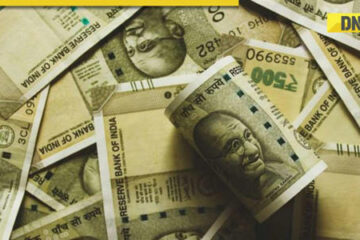BBC offices in India have been raided by tax department officials, just weeks after the release of a documentary critical of the prime minister, Narendra Modi, which was later blocked by the government.
More than a dozen representatives from the nation’s income tax department showed up at the BBC offices in Delhi and Mumbai, where hundreds of staff members work, to conduct a “survey,” according to people employed by the broadcaster. The offices were locked, and numerous journalists’ phones and documents were confiscated.
According to police, many accounts and financial information were confiscated during the searches on Tuesday morning as part of a tax evasion probe into the BBC’s business operations in India.
The BBC announced that it was fully cooperating and verified the raids. The statement continued, “We want to have this matter handled as quickly as possible.
It happens at the same time that the BBC is at the centre of a controversy in India over a two-part documentary series called India: The Modi Question. This series focused on the part that Modi, who was then the chief minister of Gujarat, played in violent Hindu-Muslim riots that tore through his state in 2002 and left more than 2,000 people, mostly Muslims, dead.
Allegations of Modi’s involvement in the violence have been made for years, and as a result, he was expelled from the US for almost ten years. According to a British government paper from the time, Modi was “personally accountable” for not putting an end to the murders of Muslims during the riots, and the carnage had “all the characteristics of genocide,” according to the BBC documentary.
Although the series was not made available in India, the Modi administration expressed outrage over it and accused the broadcaster of bias and having a “colonial mindset,” noting that Modi had been exonerated of all accusations by a supreme court panel in 2012.
The sharing of any links or videos from the documentary on social media was prohibited under emergency laws. Students around the nation held university screenings of the documentary in violation of the prohibition; several of them were detained by authorities.
In support of the documentary, the BBC insisted that it was “rigorously researched in accordance with highest editorial standards.”
Following the searches, Gaurav Bhatia, a spokesperson from Modi’s ruling Bharatiya Janata party (BJP), described the BBC as the “most corrupt organisation in the world” and accused it of “venomous, shallow and agenda-driven reporting”.
“If any company or organisation is working in India, they have to comply with the Indian law. Why are you scared if you are adhering to the law? The [tax] department should be allowed to do their work,” said Bhatia.
The raids of the BBC were widely criticised by members of the opposition. “At the time India holds the presidency of the G20 nations, prime minister Modi continues to brazenly show India’s slide into authoritarianism and dictatorship,” tweeted the Congress MP Gaurav Gogoi.
Akhilesh Yadav, the leader of the Samajwadi party, said: “When a government stands for fear and oppression instead of fearlessness, then one should realise the end is near.”
The BBC has been under increased scrutiny since the furore over the documentary, including a petition to the supreme court to have the BBC banned in India, which was dismissed by the judges.
There has been an increasingly pressured environment for the media since Modi came to power in 2014. Journalists and news organisations that have published work critical of the BJP government have faced harassment, raids, criminal cases and tax investigations, and India has dropped to 150 out of 180 in the World Press Freedom Index.
The income tax department’s activities, according to the Editors Guild of India, are part of “the tendency of employing government authorities to intimidate and harass journalistic organisations that are critical of government policies or the governing establishment.”
Following articles that have negative implications for the Modi administration, the BBC is the most recent organisation to be the target of a tax evasion inquiry. While Amnesty International, which has recorded the loss of human rights and persecution of minorities, had to close its India activities in 2020 after having its accounts frozen by a central government body, tax raids have been conducted on Oxfam and a number of thinktanks.
Amnesty referred to the BBC raid as “a clear disrespect” to the right to free speech. Aakar Patel, the chair of Amnesty International India’s board, stated that the Indian government is “obviously seeking to harass and intimidate the BBC over its critical coverage of the ruling Bharatiya Janata party.”
source from: msn.com



